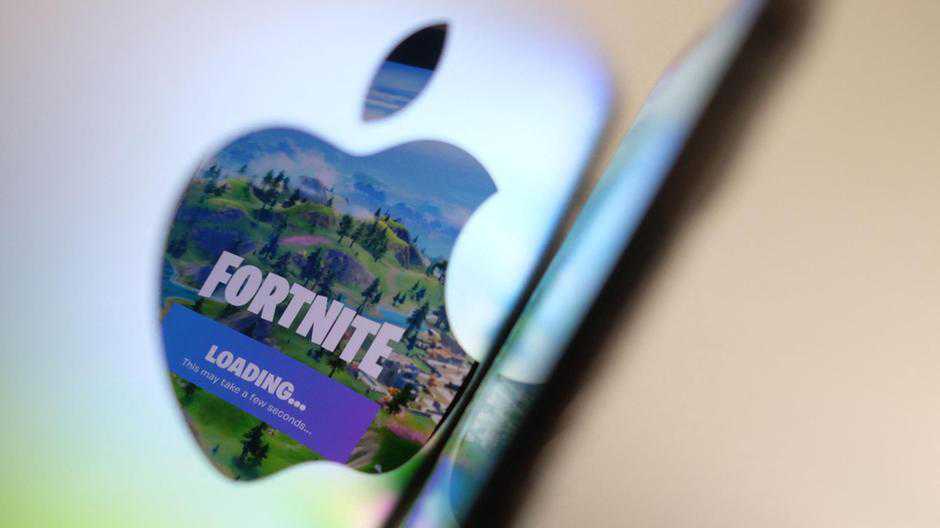Apple's 'walled garden' faces Epic attack in application store trial
04 May, 2021

Apple’s lucrative app store was alternately portrayed as a price-gouging monopoly and a hub of world-changing innovation through the preamble to a trial that may reshape the technological landscape.
The contrasting portraits were drawn on Monday as lawyers for Apple and its own foe, Epic Games, outlined their cases within an Oakland, California, federal court before US District Judge Yvonne Gonzalez Rogers.
While Apple depicted its application store as an invaluable service beloved by consumers and developers alike, Epic Games attacked it as a breakthrough proven fact that has morphed into an instrument of financial exploitation that illegally locks out competition.
The trial, likely to last the majority of this month, revolves around the 15 to 30 % commission that Apple costs for subscriptions and purchases made from applications downloaded from its store - the only person accessible on the iPhone, iPad and iPod.
Epic, the maker of the favorite Fortnite video game, laid out evidence drawn mostly from Apple’s internal documents in an attempt to prove the company has generated an electronic “walled garden” during the past 13 years within a technique crafted by its late co-founder, Steve Jobs. The formula, Epic contends, was created to help to make it as difficult as possible for consumers to avoid buying its products.
“The most prevalent flower in the walled garden may be the Venus fly trap,” said Epic legal professional Katherine Forrest.
Ms Forrest highlighted professional evidence that'll be submitted during the trial that estimated Apple reaped income of 75 to 78 per cent during 2018 and 2019, despite the fact that Jobs publicly said the business didn’t be prepared to make large sums of money from the iphone app store when it opened found in 2008.
The app store is now an integral little bit of a services division that made about $17 billion in revenue during the first 90 days of the year alone.
Apple brushed off Epic’s arguments as a good case brimming with unfounded allegations created by a good company that wants to eliminate the application store commission to improve its own profits even though freeloading off a great iPhone ecosystem which has cost a lot more than $100bn to build.
Karen Dunn, Apple’s attorney, pointed to Epic’s internal documents outlining a strategy referred to as “Project Liberty” that paved a means for Fortnite to purposefully breach its application store contract last summer and set up a showdown above the fees.
“Rather than buying innovation, Epic committed to lawyers, PR and policy consultants in order to get all of the benefits Apple provides without paying,” Ms Dunn stated.
In sworn proof, Epic leader Tim Sweeney acknowledged that the business is trying to improve its current annual earnings of about $5.1bn through its own software store. The Epic store, which is currently banned from the iPhone and various other Apple products, charges a 12 % commission on in-app transactions. That model isn’t lucrative yet, Mr Sweeney stated, but he predicted the Epic store begins making money through the next 3 or 4 years.
“Epic is solely seeking changes to Apple’s future behaviour,” Mr Sweeney stated, so the company won’t need to pay higher commissions but still manage to offer Fortnite and different games on the iPhone. Apple ousted Fortnite from its iphone app store last August after Epic tried to use its payment system.
Apple leader Tim Cook - Jobs’s hand-picked successor - gives evidence during the trial, too, but his appearance isn’t expected until nearby the end of a good courtroom drama that may unfold before only a handful of mask-wearing persons allowed inside everyday as a result of pandemic restrictions.
While the trial calls for occasions of high intrigue that could divulge closely guarded secrets, the nuts and bolts of the case will probably hinge on extra mundane matters such as for example market definitions.
Epic contends the iPhone is becoming so ingrained found in society that these devices and its own peripheral services including the app store has turned into a market by itself. Within that argument, Epic contends the Apple ought to be forced to open up its walled garden to substitute options, such as for example allowing other iphone app stores and payment options besides its.
“The garden could have a door,” Epic legal professional Ms Forrest insisted. “It had been artificially closed.”
Apple is seeking an even more broader market definition that could encompass the consoles, computers and other devices that people use to play video gaming. The company is pointing to the roughly 2 billion other smartphones that operate on Google’s Android software, which allows alternative methods to download apps.
The various way that Google manages applications on Android is one example that Apple believes proves that consumers possess other choices, but most of them prefer keeping their digital activities within a carefully manipulated walled garden.
Epic is “asking us to remove our competitive advantage,” Apple lawyer Ms Dunn said. “Epic wants us to come to be Android, but we don’t wish to be.”
Epic is suing Google in another case accusing the business of illegally gouging software through its Play store for Android devices.
Source: www.thenationalnews.com
TAG(s):
